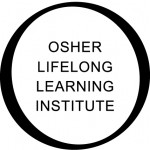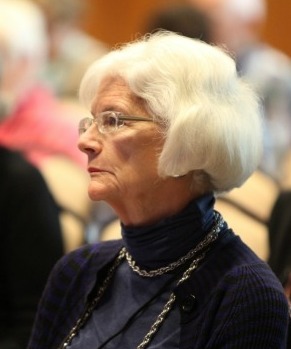 The healthcare reform crisis, American protest movements, classical music appreciation and Maya culture from ancient to modern times are among the spring 2012 classes offered by the Osher Lifelong Learning Institute at Vanderbilt University.
The healthcare reform crisis, American protest movements, classical music appreciation and Maya culture from ancient to modern times are among the spring 2012 classes offered by the Osher Lifelong Learning Institute at Vanderbilt University.
Other diverse courses will explore promising discoveries in medicine, timely foreign policy issues, stories by Kentucky writer Wendell Berry, Parisian culture under Napoleon III and a Vanderbilt Owen professor’s research on six “innovation killers.”
The non-credit classes are intended for older adults who want to pursue lifelong learning through lectures and discussions in an informal and relaxed environment. Two of the spring classes will be offered at The Heritage at Brentwood.
The following courses have been scheduled:
- “Great Decisions 2012: Foreign Policy Discussion Group,” led by Osher members Ben Adams and Mary Pat Silveira, a retired United Nations official. The class meets from 9:30 to 10:45 a.m. for eight consecutive Mondays, starting March 12, at St. George’s Episcopal Church, 4715 Harding Road.
- “Healthcare Reform Crisis: Problems and Possibilities,” taught by Gottlieb C. Friesinger, professor of medicine, emeritus, Vanderbilt; Larry Van Horn, associate professor of management, Vanderbilt Owen Graduate School of Management; Malcolm Getz, associate professor of economics at Vanderbilt; and U.S. Rep. Jim Cooper, D-Tenn., an adjunct professor of health care management at the Vanderbilt Owen School. The class will meet from 11 a.m. to 12:15 p.m. for six consecutive Mondays, starting March 12, at St. George’s Episcopal Church, 4715 Harding Road.
- “Music Appreciation,” taught by Mitchell Korn, adjunct Blair School of Music professor; and Robert Bond, music educator, musician and composer. The participatory lecture workshops on symphonic and classical music will meet from 9:30 to 10:45 a.m. for six consecutive Tuesdays, starting March 13, at Belle Meade United Methodist Church, 121 Davidson Road.
- “Medical Advances II,” a continuation of the series that began during the winter term, will be presented by Vanderbilt University Medical Center faculty. Topics include diabetes, depression in older adults and eye health/macular degeneration, among others. The course meets from 11 a.m. to 12:15 p.m. for six consecutive Tuesdays, starting March 13, at Belle Meade United Methodist Church, 121 Davidson Road.
- “How We Kill Innovation (Without Even Trying),” taught by David Owens, professor of management and innovation, Vanderbilt Owen Graduate School of Management. The course is based on Owens’ book, Creative People Must Be Stopped, with the expectation that participants will actively engage with the material and each other in an effort to be smarter about innovation and more creative. It meets from 9:30 to 10:45 a.m. for six consecutive Wednesdays, starting March 14, at the Commons Center.

The Osher Lifelong Learning Institute offers a wide variety of classes for older adults who want to pursue lifelong learning through lectures and discussions. (Susan Urmy / Vanderbilt University)
- “Living in Paris Under Napoleon III,” taught by Robert Barsky, professor of French and comparative literature, will focus on life in 19th-century Paris through the passionate eyes of characters – fictional and real – who were assembled by the French writer Émile Zola. The class meets from 11 a.m. to 12:15 p.m. for six consecutive Wednesdays, starting March 14, at the Commons Center.
- “Protests and Social Change,” an in-depth look at 150 years of protests and their societal impact, will take place from 9:30 to 10:45 a.m. for six consecutive Thursdays, starting March 15, at the Commons Center. Team-teaching this course will be John Seigenthaler, founder of the First Amendment Center; Gary Gerstle, the James G. Stahlman Professor of American History at Vanderbilt; Carole Bucy, professor of history, Volunteer State Community College; George Barrett, attorney, Barrett Johnston; Steve Cobb, attorney, Waller Lansden Dortch & Davis and former state legislator; Mike Murphy, attorney and former state legislator; and Steven Tepper, associate professor of sociology and associate director of the Curb Center for Art, Enterprise and Public Policy at Vanderbilt.
- “Apocalypse Now? Modern Maya and Ancient Prophecies” will be taught by Mareike Sattler, senior lecturer in anthropology at Vanderbilt; and Avery Dickins de Girón, assistant director, Vanderbilt’s Center for Latin American Studies. The seminar will introduce participants to Maya culture, including political economies in Guatemala, modern Maya languages and the meanings of ancient Maya prophecies that supposedly predict the end of the world in December 2012. The class will meet for six Thursdays, starting March 15, at the Commons Center.
- “Great Decisions 2012: Foreign Policy Discussion Group,” led by Osher members Ben Adams and Mary Pat Silveira, a retired United Nations official. The class meets from 9:30 to 10:45 a.m. for eight consecutive Fridays, starting March 16, at The Heritage at Brentwood, 900 Heritage Way. This course will cover the same material as the one previously mentioned that meets at St. George’s Episcopal Church.
- “The Port William Stories of Wendell Barry” will be taught by Elaine Goleski, teacher and former Vanderbilt library development officer. Berry is a poet, essayist, farmer, activist and novelist who has written a series of interlinked stories about Port William, Ky., and the generations of families who have lived in this agricultural community. The class will meet from 11 a.m. to 12:15 p.m. at The Heritage at Brentwood, 900 Heritage Way.
Annual membership dues for the Osher Lifelong Learning Institute at Vanderbilt are $10 per person. The charge for spring term classes is $80 and enables the individual to sign up for one to three classes. Additional classes beyond three are $10 per course. Membership benefits include field trips and monthly “Lunch and Learn” sessions.